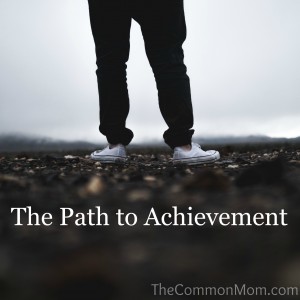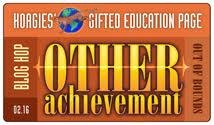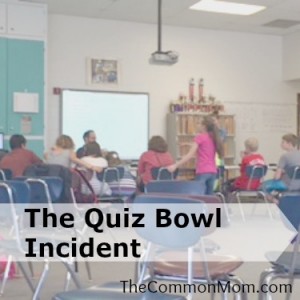We realized pretty early that our daughter wasn’t going to be on the usual path to achievement.
Typical comments from around age five gave us our first clues:
“Mom, I think I should stay inside from recess and learn about geography.”
“Mom, I don’t have time to make new friends. I’m learning about calculus.”
“Mom, what font is on that poster?” (asked in the middle of a kindergarten basketball game)
And when I saw how ballet classes went at age three I knew the visions of dance recitals, gymnastic meets, and all things athletic were never going to be reality.
We had her tested and when we got the results of the IQ tests, whoa. This kid has potential.
Potential is one heavy word. Potential means possibilities. Big possibilities. Maybe game changer possibilities. It’s like finding out your pee-wee football player has the same potential as Peyton Manning. She is capable of so much and as a parent it’s my job to help her get there. No pressure.
How do you change all that raw potential into achievement? (By the way, this is not a rhetorical question. I’d appreciate hearing how other parents are addressing this issue.)
That’s the bugaboo. Having potential doesn’t count for much in the real world. There aren’t any jobs that ask for your IQ. There’s not an IQ box on a patent application. That IQ alone won’t get you into a college.
You need to demonstrate what you can do. What you have achieved. The IQ is the talk. The achievement is the walk. You have to walk the walk.
Lots of gifted kids, and not gifted kids, are passionate about a particular topic. Maybe it’s dinosaurs, space, weather patterns, or robotics.
But my kid is content to sit back and watch Gravity Falls or read Calvin & Hobbes. Recently it’s been watching M.A.S.H. reruns. She claims she’s learning about the Korean War. She also believes Frank Burns was under-appreciated. Obviously she still has much to learn about the Korean conflict and worthy sitcom characters.
She gets straight A’s and can rock a standardized test like nobody’s business. But she hasn’t found her “thing” yet. She hasn’t found her passion which would, I believe, lead her to achievement on a new level for her.
She likes robotics and has taken several classes but when she had the opportunity for her own Mindstorms kit, she turned it down.
She’s a mathy girl, but getting her to the local math circle is sometimes more than I can deal with it.
At her first MathCounts competition she failed to finish all the questions, and she wasn’t concerned. Even with leaving problems unanswered she did well for her age and that’s good enough for her.
Just imagine what she could’ve achieved had she finished. Imagine what she could’ve achieved had she studied.
What Will Achievement Look Like?
When I have the achievement conversation with her school, they look incredulous. They think I’m a wee bit crazy. By their standards, she is a high achiever. But I know better. She’s phoning it in.
My current plan is twofold: continue to present opportunities that challenge her and to let go of my own ideas of what her achievement should look like. That’s a tough one but it’s getting easier to let go as she matures and finds her own voice. I have faith in the person she’s becoming.
She’s a cheetah but she’s not at full speed yet. She’ll get there.
No, I don’t know yet what achievement will look like for her – but I can’t wait to find out.
Visit Hoagies Gifted Blog Hop for more takes on achievement.










